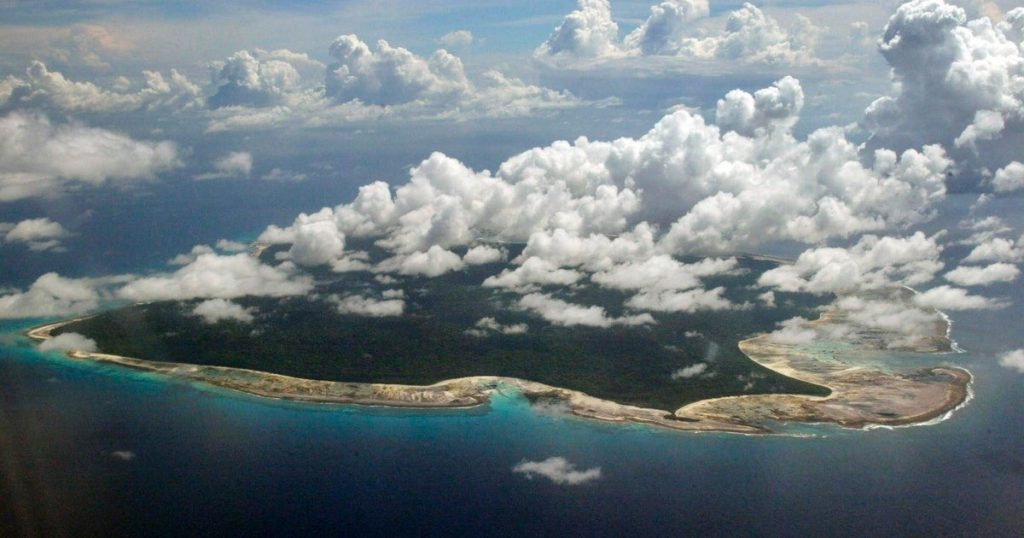A 24-year-old American YouTuber, Mykhailo Viktorovych Polyakov, has been detained after attempting to visit the forbidden North Sentinel Island in the Indian Ocean, home to the reclusive Sentinelese tribe. This incident comes more than six years after a similar attempt resulted in the death of another American, creating a renewed focus on the protection of indigenous tribes. Polyakov’s actions, which he termed an adventurous exploration, are viewed as a significant violation of Indian laws designed to protect the tribe and its isolation from outsiders.
| Article Subheadings |
|---|
| 1) Background of the Sentinelese Tribe |
| 2) Polyakov’s Arrest and Charges |
| 3) The Reaction from Authorities and Organizations |
| 4) The Legal Consequences of Trespassing |
| 5) Implications for Cultural Preservation |
Background of the Sentinelese Tribe
The Sentinelese are one of the last remaining uncontacted tribes in the world, living on North Sentinel Island, part of India’s Andaman and Nicobar Islands. They have been isolated for thousands of years, leading a hunter-gatherer lifestyle that is largely untouched by external influences. The Indian government has designated the island a protected area to preserve the tribe’s way of life and safeguard them from diseases to which they have no immunity.
Recent history has seen tragic encounters with outsiders, including the documented killing of American missionary John Allen Chau in 2018, who attempted to make contact with the tribe. Before him, in 2006, two fishermen who accidentally landed on the island were killed by the tribe. Such incidents highlight the potentially dangerous consequences of encroaching on the tribe’s territory, as they fiercely defend their island against perceived threats.
Polyakov’s Arrest and Charges
On March 31st, 2023, Polyakov was apprehended shortly after he set foot on North Sentinel Island. Police reports suggest that he had done extensive research before attempting the visit, studying sea conditions and accessibility to the island. However, he was unaware of the strict limitations placed on outsiders attempting to visit this protected territory.
He was charged with violating local laws, which could lead to a punishment of up to five years in prison, accompanied by a fine. Officials are taking his actions seriously, emphasizing the legal ramifications of such trespass. His next court appearance is scheduled for April 29th in Port Blair, the capital of the Andaman and Nicobar Islands.
The Reaction from Authorities and Organizations
The arrest of Polyakov has drawn attention not just from local authorities but also from international organizations concerned with indigenous rights and protection. A representative from the U.S. consulate visited him in custody, though the embassy has not released any additional statements regarding his case.
In response to Polyakov’s actions,
“It beggars belief that someone could be that reckless and idiotic,”
remarked Carolina Pearce, director of the charity Survival International. The organization has condemned his attempts to contact the tribe as dangerous and irresponsible, citing the risk posed to the tribe’s health and survival due to exposure to outside pathogens.
The Legal Consequences of Trespassing
Trespassing on North Sentinel Island is a serious offense under Indian law, as it not only violates territorial regulations but also poses a risk to the indigenous population. The Indian government has established strict protocols to protect the Sentinelese, prohibiting any person from approaching within three miles of the island.
The severity of the punishment for violating these laws reflects the government’s commitment to cultural preservation and the protection of the vulnerable tribe. Polyakov’s case may serve as a cautionary tale for others considering a similar reckless adventure.
Implications for Cultural Preservation
This incident raises important questions regarding the ongoing efforts to shield indigenous communities from unwanted external pressures. The continued existence of tribes like the Sentinelese is under threat from various forms of encroachment, whether through tourism, missionary activities, or unauthorized visits.
Proponents of indigenous rights argue that uncontacted peoples, such as the Sentinelese, have the right to live free from external influences. This principle is rooted in the understanding that outside interactions can have devastating and irreversible consequences—particularly health-related—as these communities lack immunity to common diseases.
| No. | Key Points |
|---|---|
| 1 | Mykhailo Polyakov was arrested for attempting to visit North Sentinel Island. |
| 2 | North Sentinel Island is home to the isolated Sentinelese tribe, with strict bans on outsiders. |
| 3 | Officials emphasize the legal ramifications of trespassing and the protection of indigenous communities. |
| 4 | Polyakov’s actions have been widely condemned for putting the tribe’s survival at risk. |
| 5 | The incident highlights the ongoing challenges in protecting uncontacted peoples from external threats. |
Summary
The case of Mykhailo Polyakov serves as a stark reminder of the delicate balance between adventure and cultural preservation. His misguided attempt to reach out to the Sentinelese tribe not only led to his arrest but raised broader concerns about the dangers of contact with uncontacted peoples. As the world becomes more interconnected, it is crucial to respect the autonomy of these communities and prioritize their safety over the allure of exploration.
Frequently Asked Questions
Question: Why is North Sentinel Island off-limits to outsiders?
North Sentinel Island is off-limits to protect the Sentinelese tribe, whose members have lived in isolation for thousands of years and are highly vulnerable to diseases.
Question: What happened to John Allen Chau?
John Allen Chau was killed by the Sentinelese in 2018 when he attempted to establish contact with them, serving as a tragic cautionary tale for those considering similar actions.
Question: What legal repercussions can someone face for trespassing on North Sentinel Island?
Trespassing on North Sentinel Island can result in serious charges, including imprisonment for up to five years and hefty fines, as outlined by Indian laws designed to protect the tribe.
